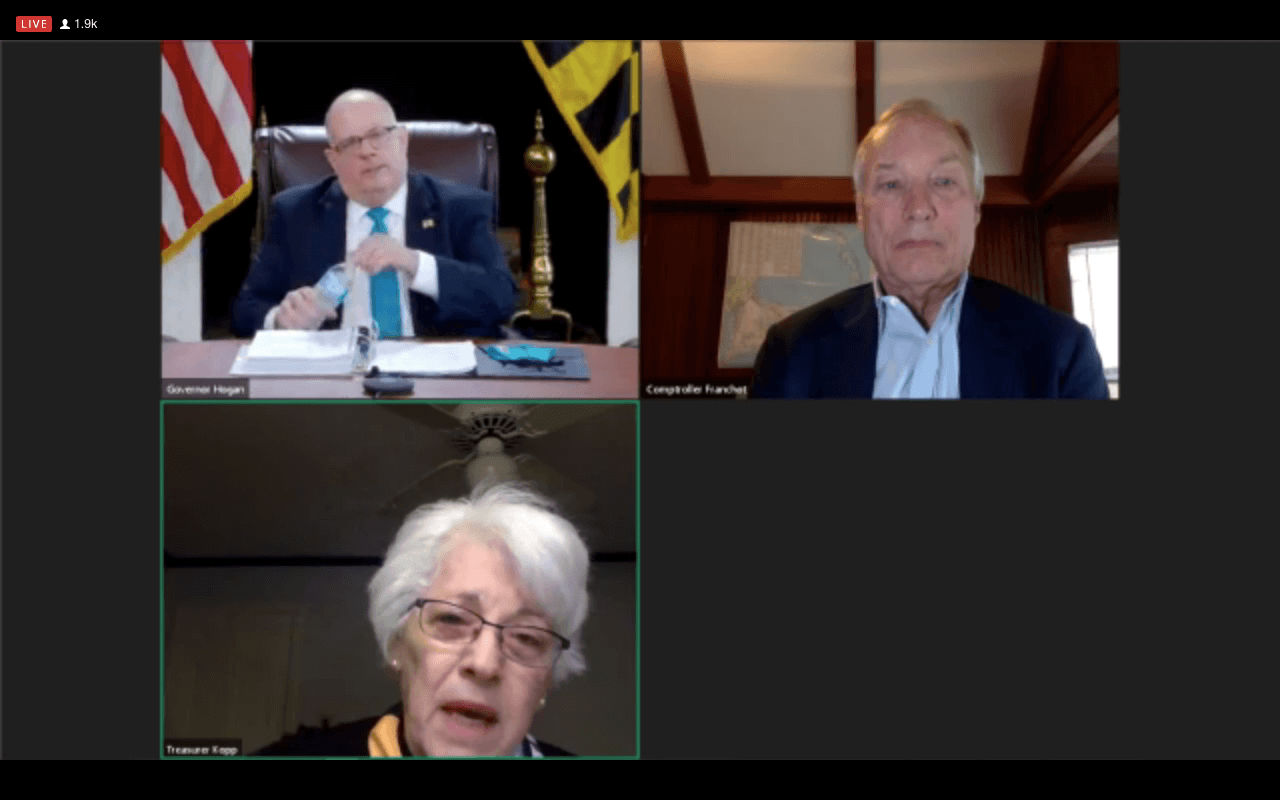State Sought Consultant to Study School Facilities in 2018. A Contract Still Hasn’t Been Awarded

A political fight from 2018 has sparked a battle over procurement policy at the highest levels of Maryland government — and the fight is likely headed to the courts.
In a highly-charged legislative debate in 2018, the General Assembly took many of the powers over school construction contracts away from the Board of Public Works — the powerful body that consists of the governor, the state comptroller and the state treasurer.
The legislative push had several components, but was partially a way for House and Senate Democrats to limit the power of Republican Gov. Lawrence J. Hogan Jr. and his frequent BPW ally, Comptroller Peter V.R. Franchot (D). “It’s politics, and it’s a personal vendetta against my colleague, the comptroller,” Hogan said at the time.
With school construction oversight in Maryland jumbled as a result of the legislative vote, the head of the Interagency Commission on School Construction (IAC), Robert A. Gorrell, who has led the agency since 2017, sought advice on how to conduct a sweeping study of the state’s school maintenance and construction needs, as the legislation mandated.
“This is a very important tool” for state education leaders, Gorrell said.
So he turned to a proven expert in the field — MGT Consulting Group, a public sector management firm — whose counsel helped the IAC and state procurement officials develop a contract proposal in 2018 known as an RFP to conduct a school facilities survey in Maryland.
The problem was, by offering the state advice on what a contract might look like, MGT inadvertently disqualified itself from bidding on the work. MGT was conducting similar work in Anne Arundel County, and the IAC initially thought it could piggyback on that project and offer the contract to MGT — but that turned out not to be the case.
Instead, the Maryland Board of Public Works awarded a contract in 2019 to Bureau Veritas LLC, a commercial real estate company and MGT rival.
But without explanation, the state later that year decided to rebid the contract. Bureau Veritas was selected again. MGT appealed its disqualification from the process to the Maryland Board of contract appeals, which twice sided with state procurement officers and against the company.
Recently, MGT filed a lawsuit in Baltimore City Circuit Court, demanding that the contract for Bureau Veritas be overturned.
On Wednesday, the Board of Public Works was supposed to take a final vote on the $5.8 million contract to Bureau Veritas.
But in a rare move, an MGT attorney and executive appeared virtually at the BPW meeting, urging Hogan, Franchot and Treasurer Nancy K. Kopp (D) to hold off on awarding the final contract until after the court has weighed in on the company’s case.
“MGT was and continues to be damaged by this decision,” said A. Trey Traviesa, the company CEO and chairman.
Traviesa and David B. Hamilton, an attorney with Womble Bond Dickinson, said the changes the COVID-19 pandemic has wrought to the state education system have made the provisions of the contract ticketed to Bureau Veritas moot.
“What you have is an obsolete RFP,” Hamilton said, later adding, “I think the state’s obligation is to get this procurement right and to have a transparent process.”
The company’s request for a delay drew support from Franchot, who said he was uncomfortable with “excluding people” from the bidding process.
But Assistant Attorney General Douglas Carrey-Beaver defended the Board of Contract Appeals’ denial of MGT’s appeal, and urged the BPW members to proceed with the contract.
“I think a first-year law student would understand the decision,” he said. “The firm did not have standing to appeal the RFP.”
Matthew-Munter, executive vice president of Bureau Veritas, said MGT’s characterization of the contract provisions as obsolete because the education landscape has been changed by COVID-19 amounted to “a Hail-Mary pass.”
Hogan appeared frustrated that the Carrey-Beaver, state procurement officials, and Department of General Services Secretary Ellington E. Churchill Jr. couldn’t provide adequate answers on why MGT was initially consulted and why the company was then excluded from bidding on the contract.
“I’m not saying they’ve been treated fairly here,” Hogan said.
Gorrell said his agency in 2018 felt pressure to conduct the survey of school facilities quickly, given the change in governance over school construction in the state.
“We were under a lot of pressure to get the assessment done,” he said.
But Hogan also noted the rulings of the Board of Contract Appeals against MGT, and suggested that denying the contract to Bureau Veritas could result in more legal challenges to the state.
“I don’t want to make that decision without a lot of lawyers giving us advice,” he said.
The board eventually voted, at Hogan’s suggestion, to put off a final vote until the next BPW meeting on Sept. 23.
Hamilton, the MGT lawyer, offered that the company’s case could move quickly through the Circuit Court — but there’s no guarantee of that.




 Creative Commons Attribution
Creative Commons Attribution